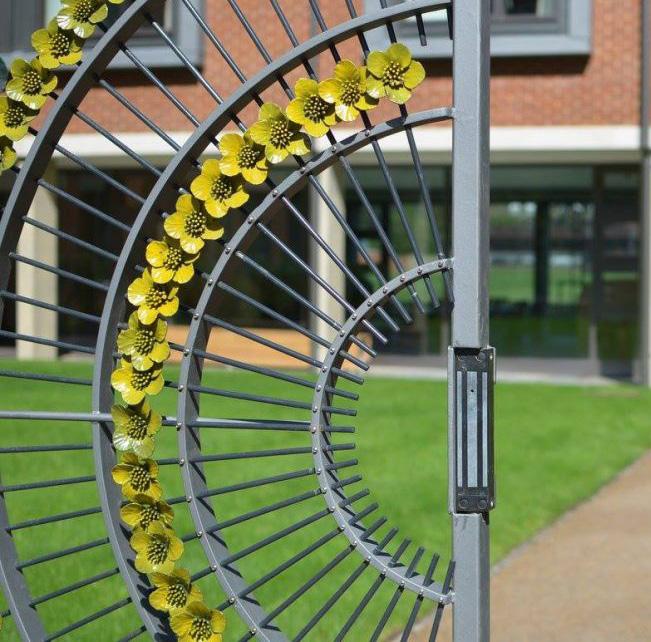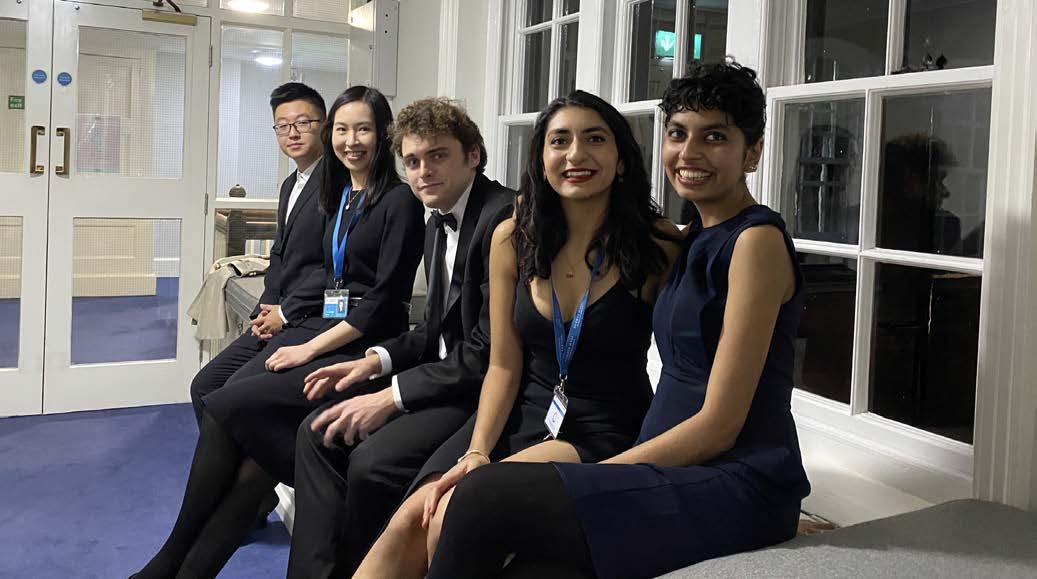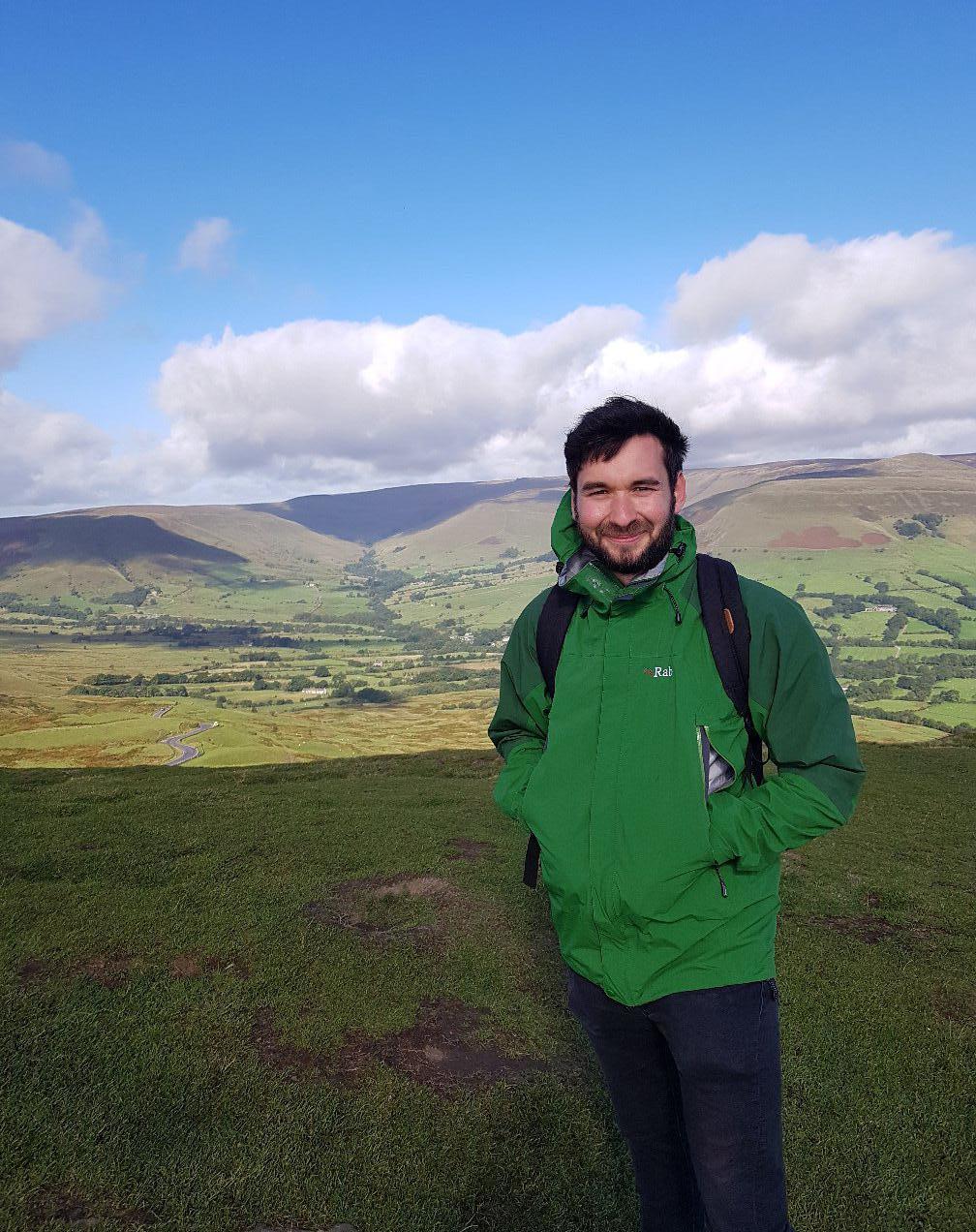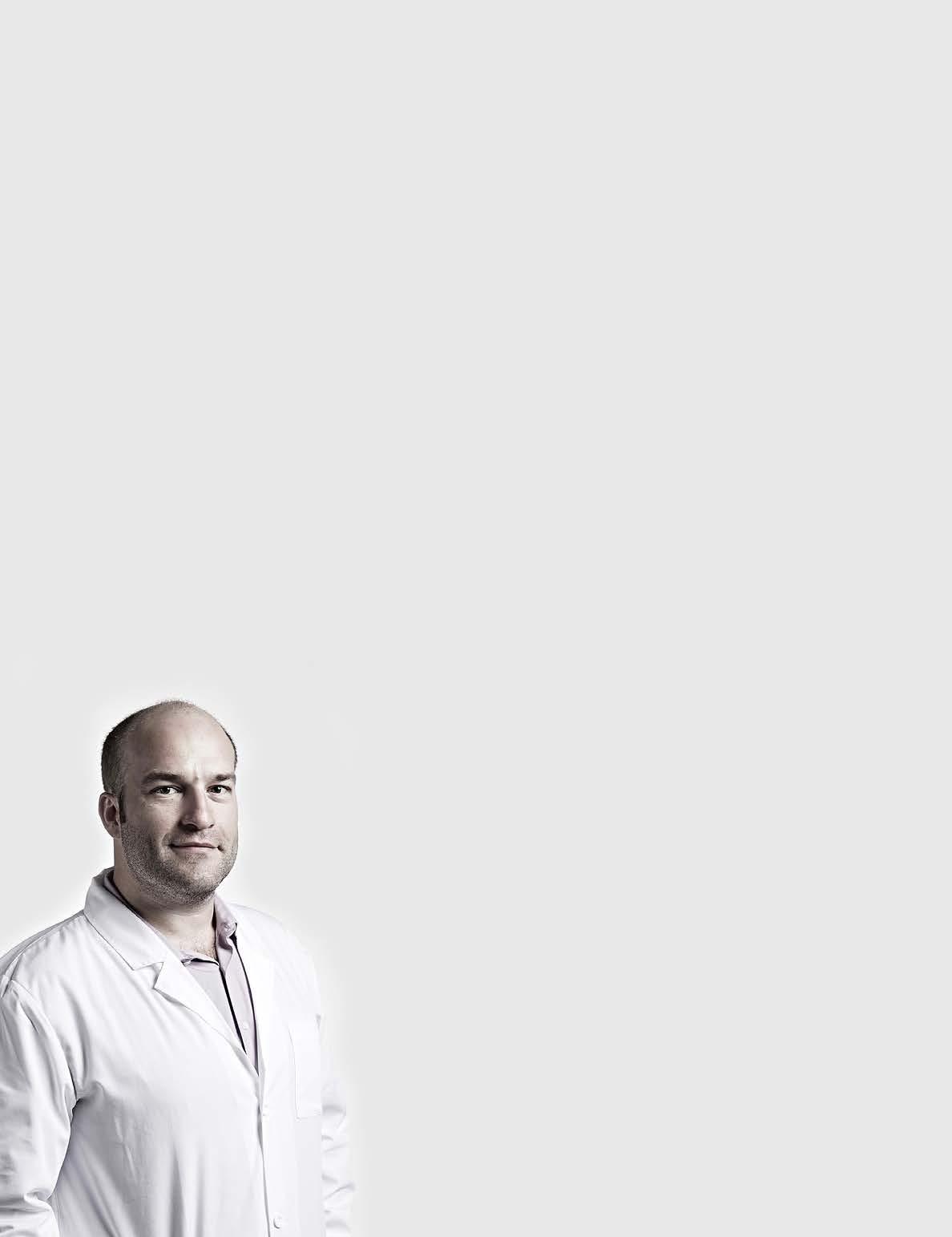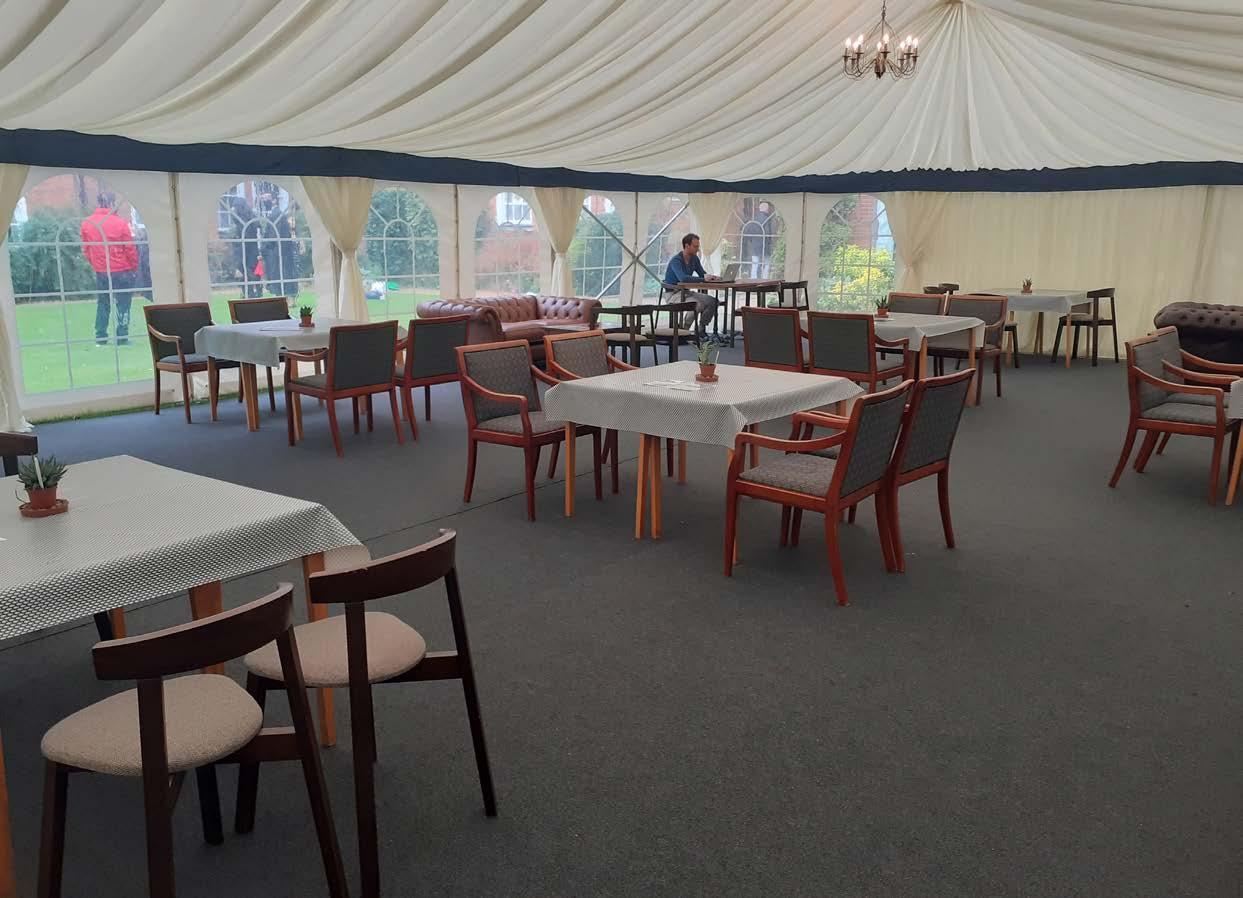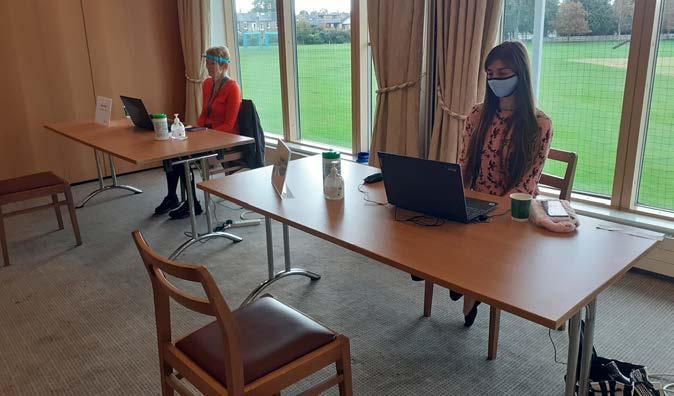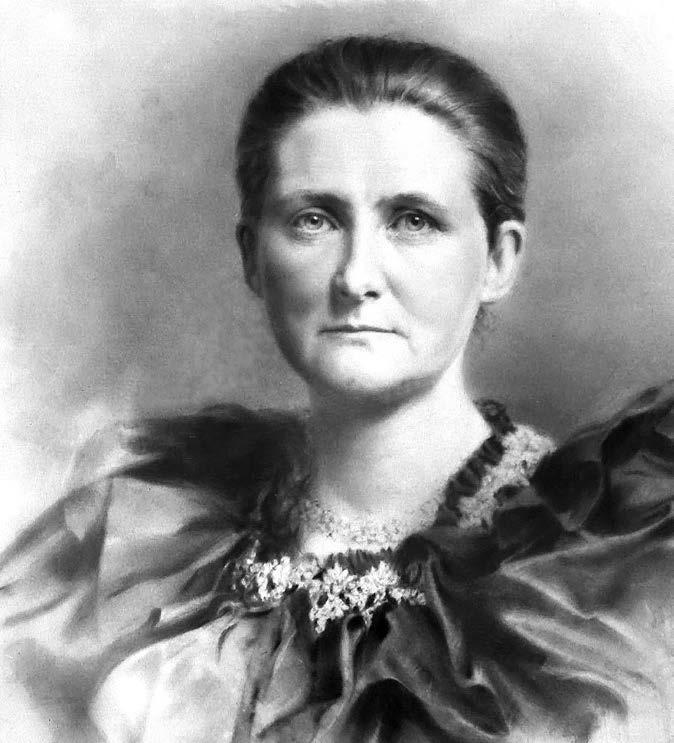
5 minute read
The Digital Education Futures Initiative at Hughes Hall
More than ever, COVID-19 has highlighted the urgent need for research into ‘future education’, an education that responds to the challenges and potential of new information and communications technology.
Advertisement
The pandemic has led to a massive and sudden increase in the use of online education but online and other digital technologies do not necessarily support doing the same things as before – they have many limitations compared to face-to-face education, but they also offer new possibilities.
In Hughes 29, before the pandemic had really taken hold globally, Professor Rupert Wegerif outlined a proposed institute for future education, supporting research that could be a catalyst for change and sharing best practice. This has now been renamed DEFI – the Digital Education Futures Initiative. DEFI works with partners in industry, policy and practice to explore the possibilities that digital technology opens up for education. It is both a centre for close-to-practice research and an initiative to create a new institute at Cambridge to serve as a global hub and thought-leader in this area.
A dynamic team has been created, based at The Bridge at Hughes Hall, who will drive the exploration of the educational possibilities that digital technology opens up and take projects forward. With Rupert as the director, exciting discussions are ongoing between DEFI and potential partners. While DEFI would never be an uncritical advocate for the use of more education technology, it will serve as a catalyst for innovation, developing new models of education and rigorously investigating their implications and potential impact.
PEOPLE
Dr Louis Major – Principal Researcher
A Senior Research Associate at the Faculty of Education, Louis works on digital futures projects with Rupert and Dr Sara Hennessy, a Hughes Hall Governing Body Fellow. He is interested in how digital technology can enable new models of education and the development of future skills such as dialogue and creativity. His work in the Faculty includes:
Principal Investigator of the Epic Games funded Gaming to Development project (G2D: 2020–21): stimulated by the narrowing difference between the ‘real’ and ‘virtual’ world, particularly in the wake of COVID-19, G2D explores how real-time 3D tools can support young people to develop important future skills.
Co-Investigator and Project Manager of the Virtual Internships Project (VIP: 2019–21): see ‘Some DEFI projects’ opposite.
Member of the EdTech Hub’s research team led by Sara: this examines how culturally appropriate uses of technology can lead to better learning outcomes for children in low-income countries. As Principal Researcher for DEFI, Louis has responsibility for developing and leading research projects and impact initiatives. In-progress work includes collaborating with industry funders ARM and Epic Games to create an Innovation Lab, researching issues like the educational impact of collaborative online gaming. He is also leading on horizon-scanning and future-scoping activities to inform practitioners and policymakers about how digital technology may enable new educational possibilities for the benefit of all.
Genevieve Smith-Nunes – Media and Communications Lead
Taking on the role of Media and Communications Lead at DEFI, Genevieve is a PhD student in creative computing education in the Faculty of Education and a member of Darwin College, and also a lecturer in computer education and consultant for many bodies including the UN.
‘As an educator (and artistic producer) the role of digital is more important than ever since COVID-19,’ Genevieve explains. ‘The loss of face to face meant I had to alter my teaching style to ensure students feel connected and part of the student community.
My PhD research has had to flip to a completely virtual development and delivery which alters more than the logistics. I am investigating teaching coding through ballet; now the ballet
Genevieve wearing the Emotiv© Insight EEG headset – a wireless device for recording brainwaves which is part of her PhD research
DEFI hopes to serve as a network and forum for research on digital innovation in education going on across Cambridge. In addition to the
Innovation Lab already mentioned, which we hope will offer research experience to a number of Hughes
Hall students, we propose several large-scale design experiments in new models of education. These include:
CLRX: a global classroomlearning research exchange
Hughes Hall’s Classroom Learning
Research Exchange (CLRX) aims to fill an identified gap in the current international education policy-practice-research ecosystem by stimulating, curating and interrogating high-quality, teacherled classroom and learning research. This is based on Dr Pete
Dudley’s successful work as Head components will have to be a fully digital, augmented reality piece. This is exciting but a little sad as it was not my initial design. During the pandemic, access to conferences, workshops, talks and fellow researchers has exploded wide open due to affordable video conferencing, chat tools and more. This access to work and research that otherwise would have been closed to me is a beautiful digital gift, but comes at the heavy price of COVID-19.
I believe DEFI can provide the interconnected network that is urgently needed for the current disparate voices researching and working in digital education futures.’ of Education in Camden (part of the London transformation) and with Lesson Study, which has helped to transform education in Kazakhstan, amongst other places. Pete is working on this with Sara, who has extensive experience with inquiry-based teacher professional development.
Cambridge OWL
The Cambridge Open Web of Learning (OWL) will be a type of social-media platform dedicated to education, but a new kind of education. Children will be taught dialogue skills and practise them through authentic encounters with their global peers, collaborating across boundaries. By equipping young people with the research skills to find practical solutions to global and local challenges, and developing
Jude Hannam – DEFI Project Administrator
‘The early scoping work I have done has made me even more aware of the fast-paced developments in the digital education field,’ Jude says. ‘It is exciting that The Bridge at Hughes Hall will be a part of coordinating, translating and disseminating research in this crucial educational sector.’
Elizabeth Hughes believed: ‘We sow for a distant harvest.’ DEFI is speeding up that harvest with
SOME DEFI PROJECTS AND PARTNERSHIPS
21st century technology. enterprise and leadership skills, Cambridge OWL will prepare them to overcome challenges together.
Virtual Internships
Exploring how to engage young people in areas of low social mobility with the world of work is a critical challenge. Phase one of this project has been successfully conducted with support from BT and Huawei. We now have a method of providing simulated role-play experience of working together as a group of interns to solve real world challenges posed by an enterprise, getting advice via video from real workers in that enterprise and producing products that the enterprise then assesses. The intention is to take this idea to scale with a global platform to marry schools looking for links with enterprises who want to work in schools.

